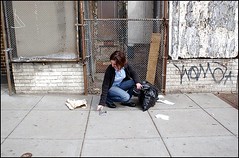Network effect is no different than the agglomeration effect--thoughts on commercial district revitalization
Today's New York Times has an article about how there are plenty of Xbox 360s to be had in Japan, while they are virtually out-of-stock across the U.S. Why, well as the article, "Need to Find an Xbox 360? Buy a Ticket to Tokyo," says:
It is not hard to figure out why. Lined up on a rack near the display are the only nine games sold for Xbox 360. But behind it are some 3,000 games, spread across six store aisles, for Microsoft's biggest rival here, the Sony PlayStation 2.
This is about the impact of "network effects," the phenomenon whereby a service becomes more valuable as more people use it, thereby encouraging ever-increasing numbers of adopters. Similarly, the agglomeration effect (in sociology the term is "critical mass") which are benefits not from scale but by being located in an area with similar, complementary businesses, which reduces costs in a variety of areas, from finding help to distribution and transportation.
 Lauren Victoria Burke For The Washington Post . At this juncture, H Street NE requires a hard sell.
Lauren Victoria Burke For The Washington Post . At this juncture, H Street NE requires a hard sell.These are the same factors that influence shopping behavior. If you don't have retail in your district, or you don't have a more complete destination (things to do and buy, places to eat and be refreshed) it's hard to compete with those shopping districts that out-compete you on these factors. That has to be addressed. Until your district is as "efficient" and "fun" a choice, most people are going to continue their current behaviors, because of the "psychological costs" of change.
Index Keywords: urban-revitalization



0 Comments:
Post a Comment
<< Home